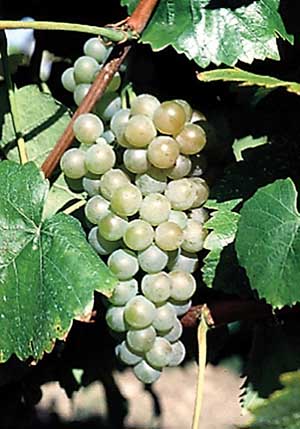
Cornell released Traminette in 1996. Today, dozens of wineries in New York, Colorado, Nebraska, Indiana, and other states now grow and make Gewürztraminer-type wine from this grape, and in 2015, it was awarded the American Society for Horticultural Sciences Outstanding Fruit Cultivar Award for a variety having significant impact on the industry. (Courtesy Bruce Reisch)
New York Sen. Charles Schumer, who spent many years advocating for the funding, made the announcement on Feb. 26.
In a news release, Jan Nyrop, director of Cornell AgriTech and associate dean of the College of Agriculture and Life Sciences, said the resulting new technologies and collaboration between researchers will increase the university’s capacity to develop higher quality, disease resistant grape varieties.
“Thanks to support from Sen. Schumer, the new USDA grape research facility at Cornell AgriTech will set the stage for our campus to become the epicenter of grape research not only in New York state, but the world,” Nyrop said.
Gan-Yuan Zhong, research leader for the USDA-ARS Grape Genetics Research Unit, also thanked Sen. Schumer for his support.
“This new facility will provide much needed infrastructure for the USDA-ARS Grape Genetics Research Unit to pursue our world-class research that addresses the U.S. grape industry’s need to maintain its competitive edge,” Zhong said. “It will accelerate the genetic improvement of grapevines and allow more opportunities for on-site collaborative work connecting cutting-edge genetic research to grow the sustainability and the competitiveness of the U.S. grape industry.”
—by Jonelle Mejica






Leave A Comment